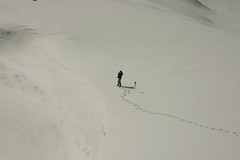Jonathan Henick is a Senior Foreign Service Officer currently serving as Public Diplomacy Fellow and Adjunct Professor at the Institute for Public Diplomacy and Global Communications (IPDGC) at George Washington University. Henick is also a 2008 recipient of PDAA’s Public Diplomacy Achievement Awards.
The Roman philosopher Seneca once said, “By teaching, we learn.” Despite having already worked for over 20 years as a Foreign Service Officer and public diplomacy practitioner, my experience as a Fellow and Adjunct Professor at George Washington University (GWU) over the past year has certainly proven his point. My preparations, readings, curriculum development, and, most of all, actual teaching of a class on Public Diplomacy to almost 30 energetic, curious, and insightful undergraduate students has taught me much more about the subject than I ever imagined possible.
First and foremost, I learned that public diplomacy as we practice it today is deeply rooted in an American historic tradition that stretches back to our founding fathers. Like diplomacy itself, public diplomacy has evolved and modernized over time, but many of the basic elements and fundamental challenges have remained surprisingly constant. As practitioners, we do ourselves and our work a tremendous disservice when we ignore the history of our profession and the chronicles of those who came before us.
In addition, before coming to George Washington I was blissfully unaware of the fact that public diplomacy has made significant strides in its development as a discreet academic field over the last couple of decades. There are now a number of scholars (including some former practitioners) as well as a few academic centers of excellence devoting considerable efforts to advancing the theory and practice of public diplomacy. If my own experience in the Department and at our Embassies abroad is any indication, diplomats and practitioners rarely have the time and luxury to read and study (much less apply) such academic contributions.
At the same time, academic treatment of public diplomacy suffers and is complicated by the Department’s work culture which tends to prefer private and confidential channels to the detriment of transparency and free sharing of information. I am firmly convinced that both academics and practitioners stand to benefit if we can successfully build stronger bridges between our respective communities. This is, in fact, the primary justification for the detail opportunities that we maintain here at GWU and other universities focusing on this field.
Finally, this assignment has given me an incredible opportunity to connect with a range of individuals and institutions working to support public diplomacy. The Public Diplomacy Alumni Association, the American Foreign Service Association, the Public Diplomacy Council, the Broadcasting Board of Governors, the Advisory Commission on Public Diplomacy, various think tanks, and a number of distinguished retired public diplomats all devote inordinate time and effort to studying, defending, and promoting the value of continued investments in public diplomacy. Many, if not most, do so as a result of firm personal conviction that such efforts are critical to advancing the interests and objectives of the United States. That passion has helped renew my own commitment to our field and also helped me to inspire it in a future generation of public diplomats.
As I look forward to returning to the Department and taking up my next assignment as Public Affairs Officer in Ankara, I am confident that my time at GWU has been well spent and that I will be better equipped to help lead our public diplomacy efforts in Turkey and around the world for years to come.

